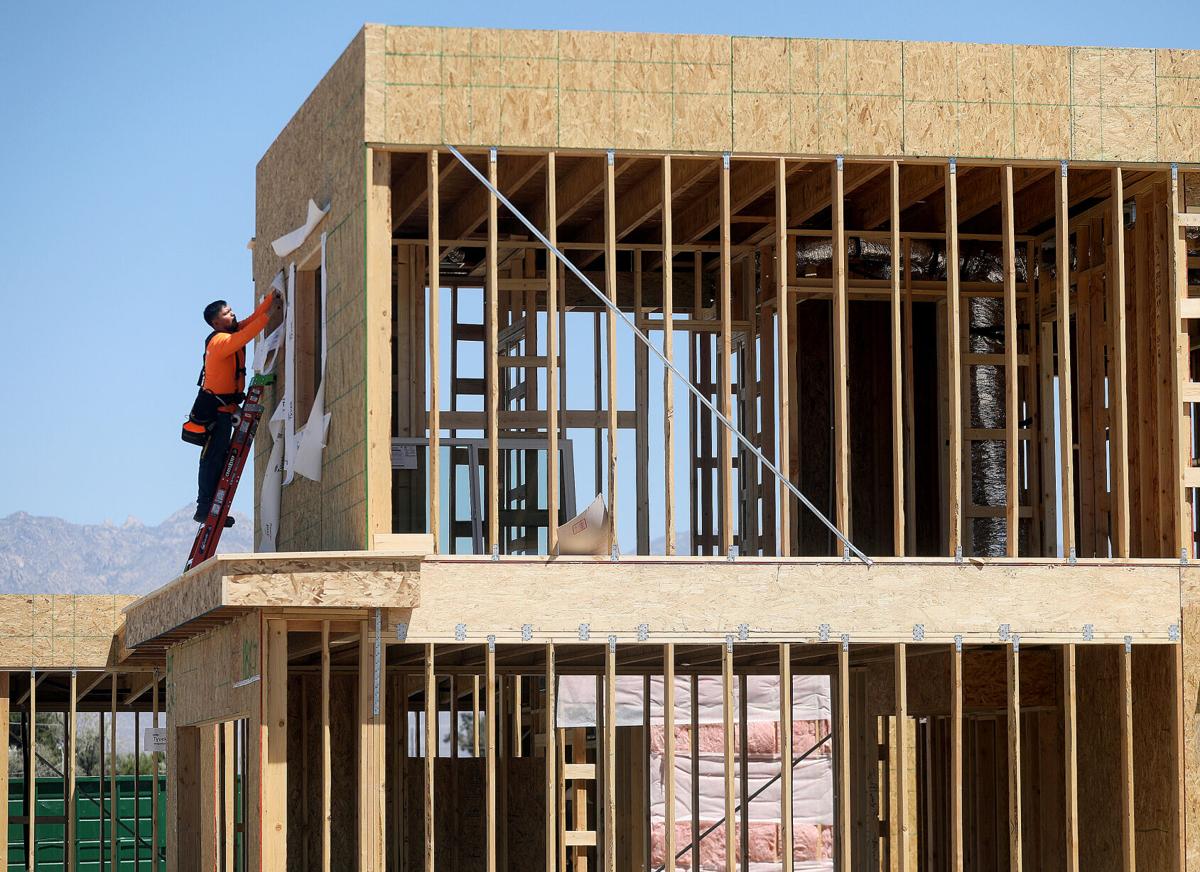PHOENIX ã The Legislature sent a measure Wednesday to Gov. Katie Hobbs to override many local zoning laws in the name of affordable housing.
On a bipartisan vote Wednesday, the Senate approved legislation that would limit the ability of large cities, of 70,000 or more people, to mandate everything from lot sizes and setbacks to design standards.
The House already gave its blessing to whatãs been dubbed the ãûÜÒøøÝýË Starter Homes Act,ãã so itãs now on the governorãs desk.
Gubernatorial press aide Christian Slater said he had no comment on whether Hobbs will sign or veto the measure.
Under other circumstances, legislation to provide more latitude to developers and to override local regulations might largely be a partisan affair in the Republican-controlled Legislature. But that was not the case on Wednesday, as seven of the 14 Senate Democrats supported the bill ã and six of the 16 Republicans opposed it.
People are also reading…
Sen. Anna Hernandez, D-ûÜÒøøÝýË, detailed for colleagues how her parents built their first starter home and it became a place where the family shared experiences.
ãI love seeing the bipartisan support behind this because itãs showing that we understand the impact of policy like HB 2570 that will deliver and put us on the path to make home ownership a reality for all of our people,ãã she said. ãIãm proud to go back to our community and say that, hey, we were able to put aside partisan politics and deliver good solutions that are so necessary in the moment of a housing crisis.ãã
Hobbs has never addressed the question of zoning and local regulation as a barrier to affordable housing.
The Democratic governor has instead focused on asking lawmakers to approve programs including down-payment assistance and mortgage-rate relief for eligible families. But she has not provided any plans for where the state would get that money.
HB 2570, spearheaded by GOP majority leaders Leo Biasiucci in the House and Sonny Borrelli in the Senate, both from Lake Havasu City, focuses instead on the premise that the cost of homes can be driven down by overriding some local government regulation.
At least one group already is urging a veto.
ãThis bill would allow a mishmash of construction in existing neighborhoods, posting a threat to existing homesã property values and residentsã quality of life,ãã said Neal Haddad, president of the Neighborhood Coalition of Greater Phoenix.
The organization also pointed out that nothing in the legislation guarantees it will increase the supply of affordable housing. Instead, it says that developers remain free to build what they want ãat whatever prices the market will bear.ãã
The measure was one of four approved by the Senate dealing with housing availability and affordability. Others include:
ã Requiring larger cities to permit ãaccessory dwelling unitsãã on lots for single-family homes, with limits on the restrictions that can be placed on them;
ã Mandating that larger cities must permit residential and mixed-use development on land zoned for commercial, office, retail or parking space;
ã Imposing new requirements on cities to speed up building permit inspections.
Those three bills must now get House approval if they are to go to the governor.
What cities couldnãt regulate
As the bill Hobbs now has was originally written, developers would have been able to put up a home on a lot of any size. Lawmakers agreed to scrap that in favor of a minimum lot size of 1,500 feet.
The final version also does allow cities to require homes to be set back from streets, but bars any rule requiring that setback to be more than 10 feet. And homes could be just 5 feet away from a neighboring home on the sides or backs.
Also gone from the list of things cities could require would be specific design, architectural or aesthetic elements for new homes. They also could not mandate that developers set up homeowner associations, which would have the responsibility, through dues on property owners, to maintain everything from walls to landscaping.
In a bid to pick up some votes, proponents also agreed to exempt cities of fewer than 70,000 residents from the proposed new restrictions. That cuts the scope of the legislation to just 16 of the stateãs 91 cities.
Still, HB 2570 barely scraped by, getting the minimum 16 votes required for approval.
ãStatewide housing crisisã
At the heart of the debate is to what extent local regulations and zoning make housing more expensive.
HB 2570 and the related bills lay the blame squarely on cities.
ãWeãre here because the American dream of homeownership has become unattainable for many hardworking ûÜÒøøÝýË families and young adults,ãã Senate President Warren Petersen said at a news conference in January introducing the plan.
That blame is spelled out in the measure itself.
ãIt has become virtually impossible for many ûÜÒøøÝýËns to achieve the American dream of owning their own home,ãã HB 2570 says. ãThis statewide housing crisis is caused in no small part due to highly restrictive regulations imposed by municipalities.ãã
Legislatorsã goal is to spur the development of ãstarter homes,ãã smaller homes that could be much less expensive than the traditional tract homes that dominate the stateãs single-family home housing market. Reducing lot size would help developers pack more homes into a project and reduce costs.
Home prices in ûÜÒøøÝýË have skyrocketed. The median price for a detached single-family home in metro Phoenix sits at $430,000, a 53% rise just since 2020.
But Tom Belshe, executive director of the League of ûÜÒøøÝýË Cities and Towns, said the issue is more complex than that. He said the legislative doesnãt address rising labor costs and the shortage of skilled craft people.
Howard Fischer is a veteran journalist who has been reporting since 1970 and covering state politics and the Legislature since 1982. Follow him on X, formerly known as Twitter, and Threads at @azcapmedia or email azcapmedia@gmail.com.












